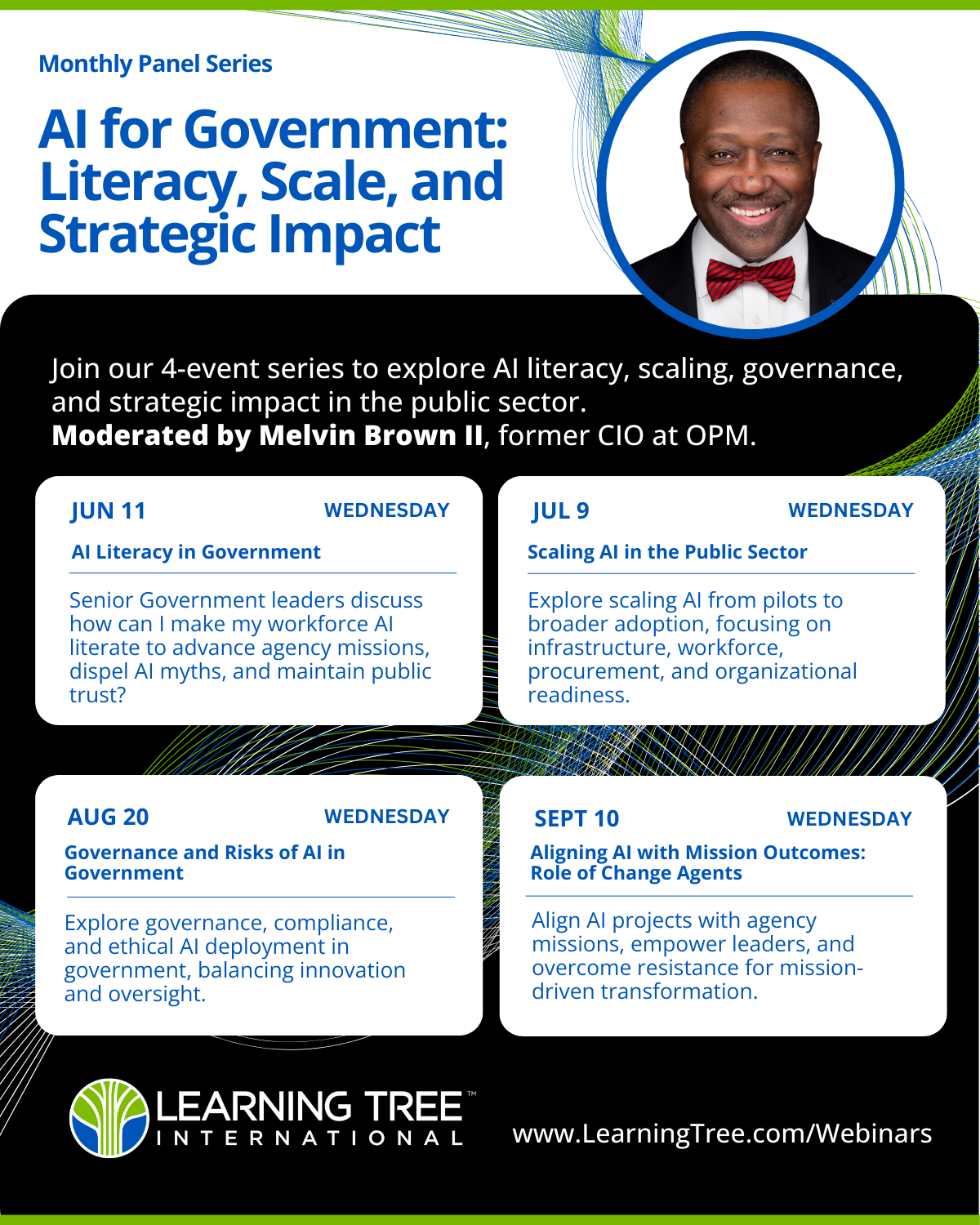This session establishes a shared understanding of Artificial Intelligence, with an emphasis on Generative AI. Panelists will explain key terms, dispel myths, and explore how AI can advance agency missions while maintaining public trust.
About this series:
This engaging chat series brings together thought leaders and subject matter experts to deliver you actionable insights on today’s AI challenges facing the Public Sector.
- June 11, 2025 • AI Literacy in Government
- July 9, 2025 • Scaling AI in the Public Sector
- August 20, 2025 • Governance and Risks of AI in Government
- September 10, 2025 • Aligning AI with Mission Outcomes: Role of Change Agents
Artificial intelligence is redefining how government agencies achieve their missions. Learning Tree invites you to join Melvin Brown II, former CIO of OPM, along with an expert panel of senior leaders from federal, DOD, and state agencies, for a FREE four-part AI in Government Webinar Series.
This engaging series begins with a deep focus on AI literacy, followed by thoughtful discussions on scaling adoption, addressing risks, and integrating AI seamlessly with mission objectives. Through real-world examples and actionable insights, the panelists will share invaluable lessons and strategies designed to empower your agency to lead with confidence.
Don’t miss this opportunity to learn directly from the innovators driving AI transformation across government.

[Webinar 5380]
Complete and submit the form below to register for the webinar.

Melvin Brown II (Moderator)
Melvin Brown II recently retired as the Chief Information Officer (CIO) for the U.S. Office of Personnel Management (OPM), where he oversaw a $200 million IT portfolio and guided a workforce of 300 federal employees and 400 contractors. Prior to this, he served as Deputy Chief Information Officer (DCIO) at OPM and held various leadership positions at the Small Business Administration (SBA) and the Department of Homeland Security (DHS). Melvin is a United States Marine Corps veteran and actively contributes to professional and community organizations. He holds two Master of Science degrees and a Bachelor of Science in Business Administration. His outstanding contributions to federal IT have earned him widespread recognition, including being named a Top Fed100 Winner by Federal Computer Week and Top Government Executive of the Year by ACT-IAC.
AI Literacy in Government FAQs
This webinar series is ideal for government executives, program managers, IT and data leaders, policy makers, cybersecurity professionals, and public sector staff seeking to build AI literacy, scale AI responsibly, navigate governance and risk, and align AI initiatives with mission outcomes. Whether you're shaping policy, managing technology, or driving innovation, this series offers valuable insights to support ethical and effective AI adoption across government.
Expert Insights: Gain perspectives from experienced leaders and SMEs who specialize in Agile, ITIL, project management, organizational leadership and organizational transformation.
Actionable Strategies: Learn practical techniques for managing change, securing stakeholder buy-in, and sustaining transformation efforts.




